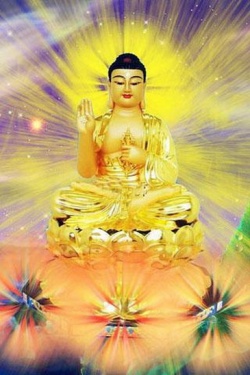Threefold Education
Grand Master Wei Chueh, deeply aware of the importance of education, weaves the Dharma teaching into three fronts: Sangha (monastics) education, social education, and school education. He puts great emphasis on nurturing qualified monastics to propagate the Dharma. He also establishes Chan meditation centers that provide Dharma lectures and services to local communities. Moreover, he founded Pu Tai Elementary, Junior High, and Senior High Schools to provide a well-rounded education for our younger generations. Through Sangha, social, and school education, important Buddhist principles such as compassion, peace, and wisdom may now reach all walks of life.
Sangha Education
To carry on the Buddhist teaching for future generations, proper education for the Sangha (community of Buddhist monks and nuns) is essential. The “Three Links of Cultivation” – Deeds of Beneficence, Scriptural Studies, and Meditation – provide the framework for a well-rounded Buddhist practice. Through development in these three areas, the Sangha at Chung Tai will have the right understanding of the Dharma and make steady progress through daily cultivation.
Scripture Studies—To Establish Right Views
The Sangha delves deeply into the sutra treasury (scriptures) to establish the right views and understand the intricacies of the Buddhist teaching. Through the Chan practice of sudden enlightenment, the Sangha aims to awaken to the Buddha mind within. To expand their knowledge and skillful means to propagate the Dharma, the Sangha is also encouraged to study the Chinese classics, foreign languages, computer applications, and so forth.
Deeds of Beneficence—Provisions for the Spiritual Journey
The Sangha members mindfully perform monastic chores, hold Dharma services, teach the laity, and undertake other acts that benefit sentient beings. Such good karmic deeds make the spiritual journey smoother and are an integral part of the bodhisattva’s practice to attain buddhahood.
Meditation—To Illuminate the Nature of the Mind
“All pure wisdom arises from deep meditation.” The practice of breath counting, observing the hua-tou (a way to probe the source of thought), Middle Way Reality contemplation, and other meditation methods are part of the Sangha’s routine during morning, evening, and other daily meditation sessions. Longer, intensive seven-day monastic retreats are held each winter. In addition, Sangha members may apply for year-round meditation in the Upper Meditation Hall. By cultivating stillness and clarity of the mind, delusions will be penetrated and the truth of reality can be genuinely perceived.
